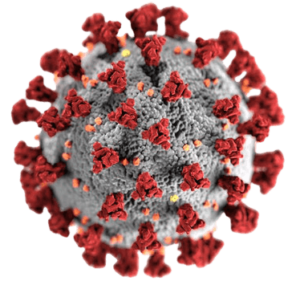New COVID-19 vaccine antibody test
AstraZeneca recently released a press release that confirmed that in their third stage of trials, vaccine efficacy of 76% (CI: 59% to 86%) after a first dose was recorded, with protection maintained to the second dose. With an inter-dose interval of 12 weeks or more, vaccine efficacy increased to 82% (CI: 63%, 92%). The analysis also showed that there is potential for the vaccine to reduce asymptomatic transmission, which is great news.
These levels of efficacy are positive for public health and reducing the impact on the NHS. It will reduce the number of deaths and severe illness, which is of course the priority. But for individuals, it does leave some uncertainty. Am I part of the 76% for whom the vaccine worked or am I still unprotected?
Knowing if a vaccine has worked requires the checking of several markers. One of those is the presence of antibodies, which is where the new Roche vaccine antibody test comes in. This test, with 100% sensitivity and 100% specificity after 28 – 35 days, not only provides a positive or negative result but also lets you know how many antibodies you have. You may, for example, want to track your antibodies over time to understand how your protection is changing – this test can help you do that. It does not tell the whole story – T cells and B cells are also important – but it tells enough of a story for us to extrapolate a sufficient immunity response to your vaccine.
When should I have the COVID vaccine antibody test?
Extrapolating from the data and performance of the antibody test, the best time for testing is 28 – 35 days after your second dose. Although you can test for antibodies after your first dose, we don’t know the degree to which a single dose provides a sufficient immune response. The new information from AstraZeneca is positive, however, so if you want to test after your first dose to check for an immunity response, you should also aim for around 28 – 35 days after your jab. For the Pfizer and Moderna vaccine, we do not yet know any information regarding immunity after a first vaccine so we recommend waiting for your second vaccine for testing.
How many antibodies do I need to know I am immune?
 We don’t know yet. Measuring immunity is a complex process of looking at both antibodies and T cells. It is possible to have a low number of antibodies but still have good protection due to your T-cells. We just don’t have this information yet. This test will let you know if you have COVID-19 antibodies and how many, but we don’t have the information available yet to interpret this.
We don’t know yet. Measuring immunity is a complex process of looking at both antibodies and T cells. It is possible to have a low number of antibodies but still have good protection due to your T-cells. We just don’t have this information yet. This test will let you know if you have COVID-19 antibodies and how many, but we don’t have the information available yet to interpret this.
We will update this blog post as research becomes available. Nonetheless, it is clinically sound to assume that having antibodies provides a degree of protection.
Can I have this test if I’ve had a previous infection?
Yes. Currently, we won’t know if the antibodies you have are due to the previous infection or your recent vaccination but this will soon change as testing further develops. If your antibody level is high, but you had an infection back in say, March 2020, we can assume that the antibodies are likely in response to your vaccine. Research has shown that antibodies from an infection last 3 – 9 months and decline over time.
What should I do if I test negative but have had my vaccine?
This is a difficult one because public health resources and vaccinations are limited currently. You may not be able to ask for another dose but you should inform your GP and consider your risk moving forward. The vaccines simply are not 100% effective and that currently is a fact of life. Hopefully, you’ll have access to booster doses later in the year.
We hope this has been helpful. If you would like to know more or to receive our COVID antibody advisory with full details, please email [email protected]
To book your COVID vaccine antibody test, please go to our online booking page and select the COVID-19 quantitative antibody test.







I feel like I definetly had covid before and developed antibodies for it, pretty much just after the time it got into the UK. I think Im going to book myself in for one of these tests and see what happens
It’s not unlikely during this pandemic, Josh! We look forward to welcoming you.